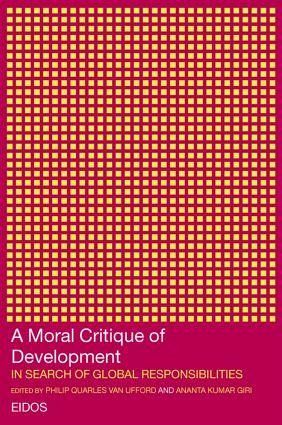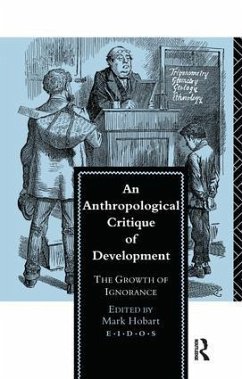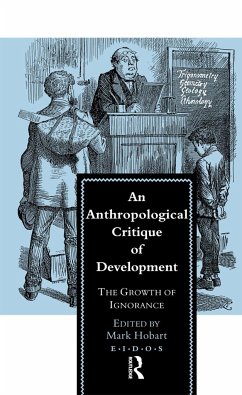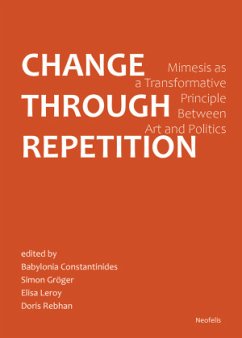
A Moral Critique of Development
In Search of Global Responsibilities
Herausgeber: Giri, Anta Kumar; Ufford, Philip Quarles van
Versandkostenfrei!
Versandfertig in 1-2 Wochen
41,99 €
inkl. MwSt.
Weitere Ausgaben:

PAYBACK Punkte
21 °P sammeln!
Recent critiques of international development practice, affecting aid organizations such as Oxfam, Action Aid and the Red Cross, have attacked the motives of those heading the 'machine' of development suggesting that it is in reality just too politically complex for good ever to come of it. But, despite the genuine need for a critical appraisal of development work, the anti-development backlash would appear to result in a moral dilemma. Should we try to help countries and people in need, or refuse potentially corrupt or harmful involvement? This book comments on how international development m...
Recent critiques of international development practice, affecting aid organizations such as Oxfam, Action Aid and the Red Cross, have attacked the motives of those heading the 'machine' of development suggesting that it is in reality just too politically complex for good ever to come of it. But, despite the genuine need for a critical appraisal of development work, the anti-development backlash would appear to result in a moral dilemma. Should we try to help countries and people in need, or refuse potentially corrupt or harmful involvement? This book comments on how international development might once again become a visionary project. With perspectives from workers in the development industry, it draws lessons from actual projects to propose a theory of 'emergent ethics': that local moral responses to specific projects must form the basis of a way forward.














